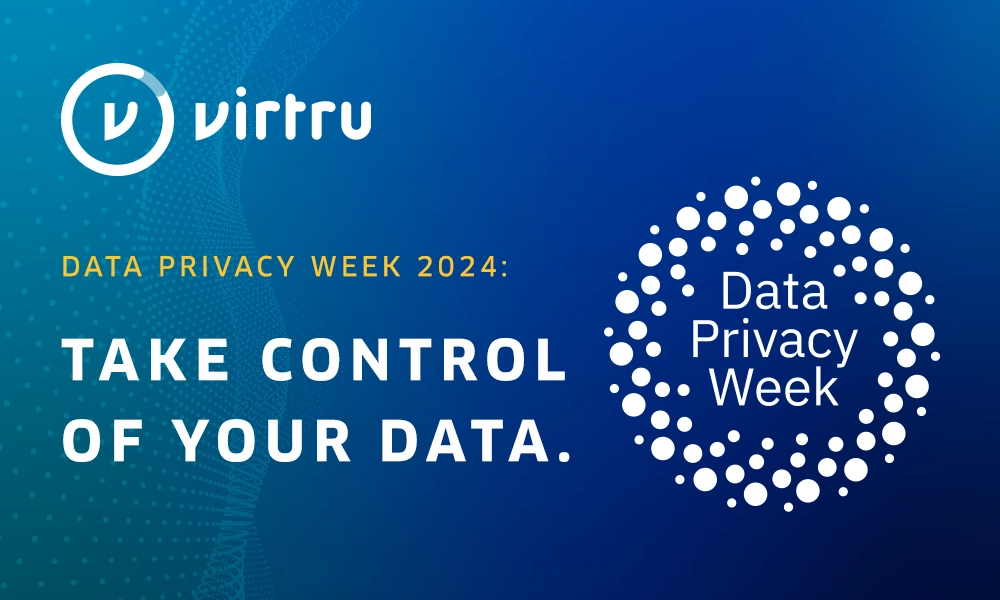TABLE OF CONTENTS
See Virtru In Action


Sign Up for the Virtru Newsletter
See Virtru In Action


In recent years, 'control' has become the watchword in data privacy, accentuated by glaring examples of the risks faced when personal data slips out of users' hands.
We’ve all borne witness to significant lapses in control over the past few years; from incessant Microsoft breaches (the latest of which being over the weekend); to Progress MOVEIt vulnerability putting millions of US citizens’ data at risk; to the rise of AI and its questionable impact on user data privacy.
These incidents highlight the real-world impacts of losing control over personal data, including identity theft, financial fraud, and loss of privacy. And it’s not just the cybersecurity industry feeling the burn - 81% of Americans feel concerned about what companies are doing with their data according to a 2023 Pew Research survey. And 34% of those surveyed had experienced personal or financial consequences as a result of losing control over their data.
That's precisely why 'Take Control of Your Data' is the perfect theme for this year's Data Privacy Week, a key initiative led by the National Cybersecurity Alliance.
The terms data privacy and security are often intertwined, but there's an important distinction. Data security is about protection - building fences to keep unauthorized users out. It's the technical safeguards that prevent things like breaches and hacking.
Data privacy goes deeper. It's about the appropriate use and governance of personal information. What's being collected and stored? How is it accessed and processed? Who gets to see it? True privacy means individuals have control over their data from start to finish.
That's why control sits at the heart of privacy. It's not enough to simply wall off and encrypt data. There must be granular visibility into how that data is handled, shared, and managed over time. Individuals need the power to audit trails, revoke access, and dictate policy.
Without personal agency over data, there cannot be meaningful privacy. Sure, information can be secured and protected from external threats. But its subjects have no say in how it's leveraged, monetized, or retained by organizations.
True privacy puts control squarely into the hands of individuals. It lets people direct their data on their own terms - not the platforms and companies that happen to collect and manage it. Privacy is about respecting data rights rather than playing defense and security whack-a-mole after gaining custody of information. Put bluntly: it's your data - you should be the one calling the shots.
Putting control of data back in the hands of owners requires focusing on two key elements: what we aim to protect (the data itself) and who we seek to empower (the data owner). At Virtru, we use an open specification called the Trusted Data Format (TDF) to accomplish this by wrapping data objects with encryption policies tailored to each individual.
Unlike solutions that rely on encrypted servers or networks, TDF protects the data itself. This empowers data owners to adopt core capabilities:
Individuals can also take matters into their own hands by minimizing unnecessary data sharing, using privacy tools, reading terms of service, providing selective consent where possible, and controlling security settings like multifactor authentication and creating strong, unique passwords. We all have a role to play in regaining control over our digital lives.
The goal of privacy is not to handcuff and restrict data - but rather to empower ethical value creation across stakeholders. With the locus of control firmly on owners' terms, data can freely and safely flow to drive innovation and upside for all.
We're excited to join the National Cybersecurity Alliance in celebrating Data Privacy Week, and we're thrilled to see data control at the forefront of the global technology conversation. To learn more about Virtru's data-centric security solutions that put control into the hands of data owners, take a peek at our platform and products.
If you'd like to discuss implementing similar robust privacy protections over your organization's data, contact our sales team to schedule a customized demo today.

The editorial team consists of Virtru brand experts, content editors, and vetted field authorities. We ensure quality, accuracy, and integrity through robust editorial oversight, review, and optimization of content from trusted sources, including use of generative AI tools.
View more posts by Editorial TeamSee Virtru In Action
Sign Up for the Virtru Newsletter











Contact us to learn more about our partnership opportunities.